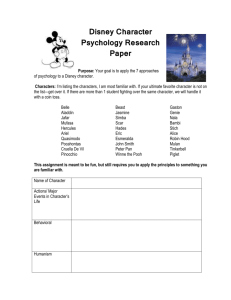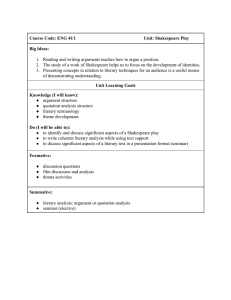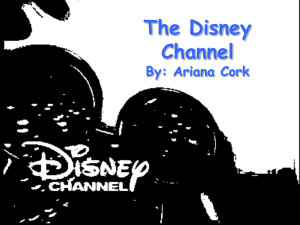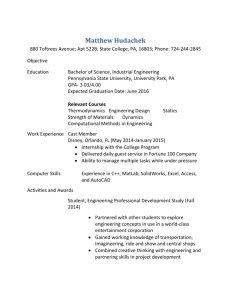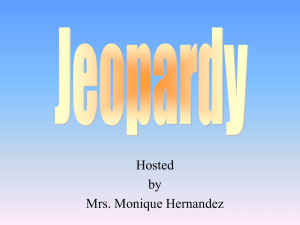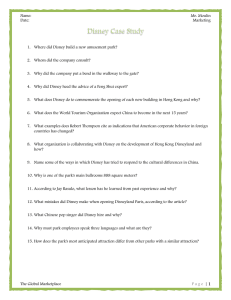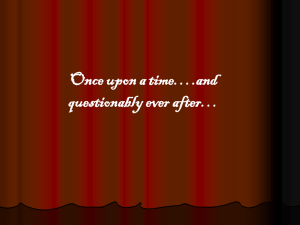English 5230
advertisement
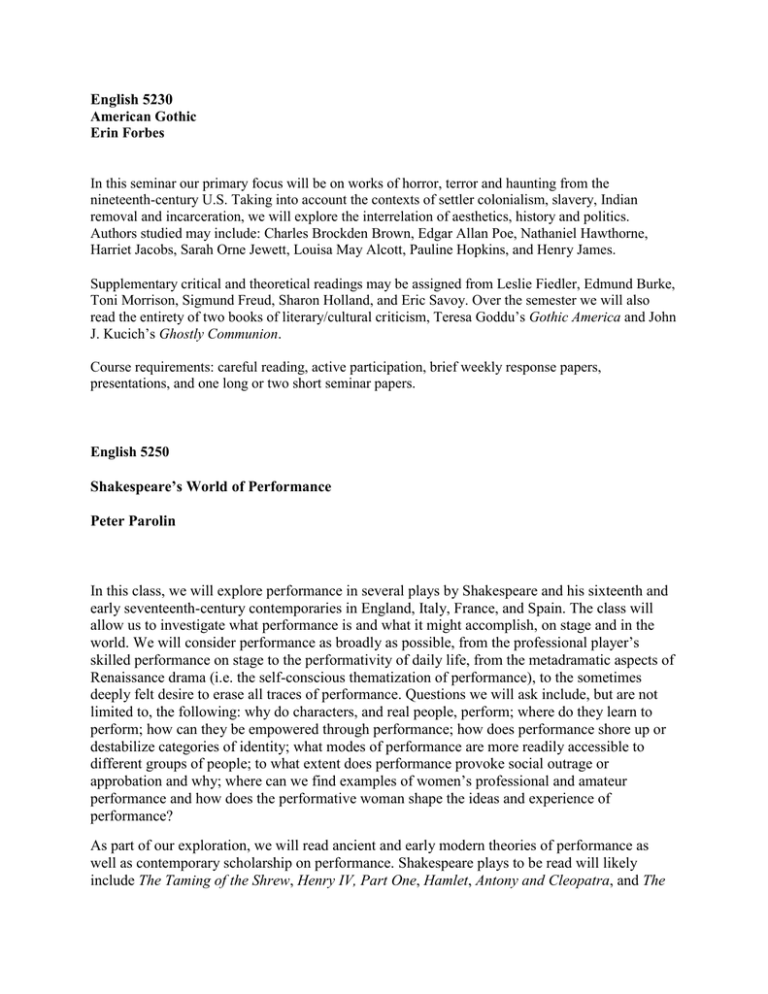
English 5230 American Gothic Erin Forbes In this seminar our primary focus will be on works of horror, terror and haunting from the nineteenth-century U.S. Taking into account the contexts of settler colonialism, slavery, Indian removal and incarceration, we will explore the interrelation of aesthetics, history and politics. Authors studied may include: Charles Brockden Brown, Edgar Allan Poe, Nathaniel Hawthorne, Harriet Jacobs, Sarah Orne Jewett, Louisa May Alcott, Pauline Hopkins, and Henry James. Supplementary critical and theoretical readings may be assigned from Leslie Fiedler, Edmund Burke, Toni Morrison, Sigmund Freud, Sharon Holland, and Eric Savoy. Over the semester we will also read the entirety of two books of literary/cultural criticism, Teresa Goddu’s Gothic America and John J. Kucich’s Ghostly Communion. Course requirements: careful reading, active participation, brief weekly response papers, presentations, and one long or two short seminar papers. English 5250 Shakespeare’s World of Performance Peter Parolin In this class, we will explore performance in several plays by Shakespeare and his sixteenth and early seventeenth-century contemporaries in England, Italy, France, and Spain. The class will allow us to investigate what performance is and what it might accomplish, on stage and in the world. We will consider performance as broadly as possible, from the professional player’s skilled performance on stage to the performativity of daily life, from the metadramatic aspects of Renaissance drama (i.e. the self-conscious thematization of performance), to the sometimes deeply felt desire to erase all traces of performance. Questions we will ask include, but are not limited to, the following: why do characters, and real people, perform; where do they learn to perform; how can they be empowered through performance; how does performance shore up or destabilize categories of identity; what modes of performance are more readily accessible to different groups of people; to what extent does performance provoke social outrage or approbation and why; where can we find examples of women’s professional and amateur performance and how does the performative woman shape the ideas and experience of performance? As part of our exploration, we will read ancient and early modern theories of performance as well as contemporary scholarship on performance. Shakespeare plays to be read will likely include The Taming of the Shrew, Henry IV, Part One, Hamlet, Antony and Cleopatra, and The Winter’s Tale. Alongside Shakespeare, we will read plays and scenarios from continental Europe, paying special attention to Italy’s commedia dell’arte and commedia erudita traditions. I would like to run this class as a collaborative seminar, with the students and the professor sharing responsibility for presenting materials and posing questions. In the spirit of collaboration, I invite students who plan to take the class to share their specific interests with me in advance and to let me know if there are particular texts that you especially desire to read English 5330 Disney Discourse Susan Aronstein In the 1960s, Richard Schickel wrote: “Disney has succeeded in putting a pair of Mickey Mouse ears on every developing personality in America.” In this class, we will examine the myths about America and Americans that accompanied those mouse ears-that we were a nation of dreamers and doers, that science and technology would usher in a “great big beautiful tomorrow,” that manifest destiny would march from the frontier (Frontierland and Adventureland) to the stars (Tommorowland). As we do so, we will focus on Disney’s visions of the past and the future as arguments about his present, studying the ways in which the Disney discourse was codified, multiplied, and disseminated during Walt’s lifetime, and capitalized on after his death. We will look at a variety of Disney texts-animated and live action movies, theme parks, television shows, documentaries, speeches and interviews, merchandise-in the context of both their political and historical moment and Disney’s real and imagined biography. The class includes with an optional field research trip to Disneyland (with some funding available). Course Requirements: careful preparation and active participation, midterm exam, class presentations, “Disneyland” report or alternative assignment, critical research paper. English 5530 Modern Critical Theory: Toward an Ecocriticsm Peter Remien Historian Donald Worster declares the twenty-first century the “Age of Ecology”—a period defined by ecological crisis and a heightened awareness of the interconnectedness of all things. It makes sense then that ecocriticsm would develop as a means for applying these insights to the study of literature. On one hand, ecocriticsm is already a well-established field: it has its own conferences, journals, professorships, and professional organizations. On the other hand, there is still considerable disagreement about its central aims, questions, and methodologies. Some works of ecocriticsm articulate their ideas against existing theoretical movements, while others, like Timothy Morton’s Ecology Without Nature, draw upon the insights of theorists like Freud and Derrida. This course has two intersecting goals. First, it will provide a general overview of central movements in modern literary theory—post-structuralism, psychoanalysis, feminism, gender studies, postcolonial theory, etc.—and, second, it will explore how the emergent field of ecocriticsm adopts methodologies and concepts from these established fields. For example, what might Kristeva’s theory of the abject tell us about modern pollution? How could the environment fit into Lacan’s account of the mirror stage? With such connections in mind, we will read canonical works of literary theory alongside related works of ecocriticsm. Possible topics for discussion include: the relationship between theory and creative non-fiction (the central genre of modern environmental writing); how literature can represent things like evolution and climate change that exist on impossibly large temporal and spatial scales; and how to deal with literary commonplaces like personification, the picturesque, and the pastoral. Assignments: A presentation accompanied by a 6-8 page paper, a 15-20 page seminar paper due at the end of the semester, and a 2-3 page book review. .
